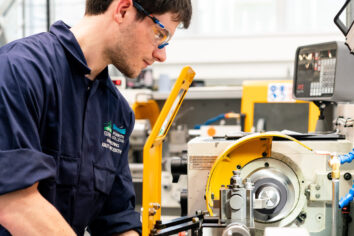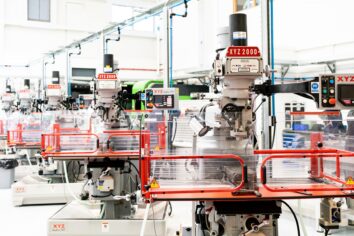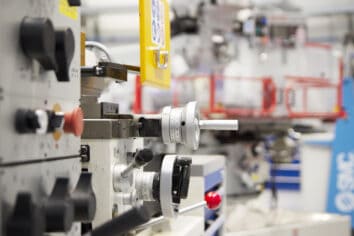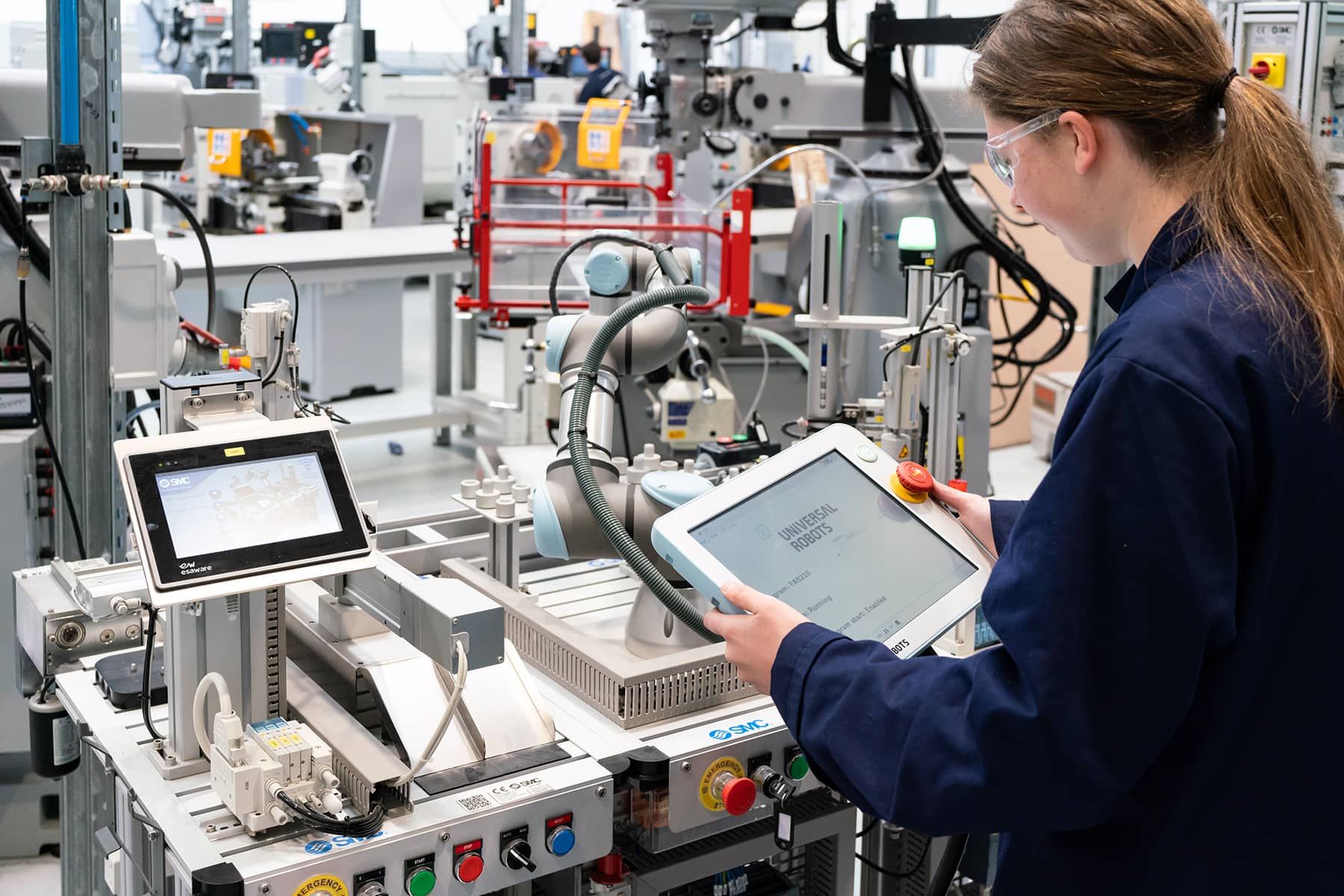Why choose this course?
This apprenticeship standard offers a dynamic opportunity for individuals to provide specialist technical support within engineering and manufacturing sectors. This apprenticeship is ideal for those progressing from a Level 3 qualification, as it builds on existing skills in gathering and analysing data, problem-solving, and producing technical documentation. Apprentices will work closely with engineers, production teams, and regulatory bodies to ensure products meet quality, cost, and delivery specifications. Perfect for those seeking a career that combines office and hands-on work environments, this apprenticeship prepares individuals to contribute to the efficiency and innovation of manufacturing processes.
Apply for this course
Start date: 01/08/2025
Top course highlights
Industry-standard facilities
Highly experienced tutors
Develop skills in line with industry needs

Learn from sector experts
Gain invaluable insights and hands-on experience from industry expert tutors who bring real-world knowledge and expertise to the classroom. Their guidance will help you develop the skills and confidence needed to excel in your chosen field.

Develop work-related skills
Enhance your practical abilities and gain hands-on experience that directly translates to the workplace. This apprenticeship course focuses on real-world applications, ensuring you are well-prepared to meet the demands of your chosen career.

Enjoy professional surroundings
Immerse yourself in a dynamic and supportive environment that mirrors the professional world. This apprenticeship course provides access to state-of-the-art facilities and resources, helping you to thrive and feel confident in your career journey.
What Will I Learn?
Knowledge This apprenticeship equips learners with comprehensive knowledge in areas such as engineering principles, manufacturing processes, and quality assurance. Apprentices will gain an understanding of materials science, production technologies, and the regulatory standards governing the industry. They will also learn about project management, data analysis, and the importance of continuous improvement in manufacturing environments. Additionally, apprentices will explore advanced topics like automation, robotics, and sustainable manufacturing practices, ensuring they are well-prepared for the evolving demands of the sector.
Skills This apprenticeship develops a range of practical skills, including the ability to gather and analyse technical data, solve complex problems, and produce detailed technical documentation. They will be trained to work effectively with engineering and production teams, ensuring that products meet quality, cost, and delivery specifications. Furthermore, apprentices will enhance their communication and teamwork abilities, preparing them to liaise with customers, suppliers, and regulatory bodies to ensure compliance and efficiency in manufacturing processes. They will also gain hands-on experience with cutting-edge technologies and tools, fostering innovation and adaptability in their approach to engineering challenges.
Behaviours Apprentices are expected to demonstrate professional behaviours such as effective communication, teamwork, adaptability, and a commitment to continuous improvement and ethical practices in their work.
Typical Duties that an Apprentice will carry out in the workplace:
- Data Analysis and Documentation: Gathering and analysing technical data from various sources to produce and update technical documentation, reports, and specifications.
- Quality Assurance: Ensuring products meet quality standards by conducting tests and inspections, and liaising with quality engineers to address any issues.
- Project Management: Using project management tools to plan, execute, and monitor engineering projects, ensuring they are completed on time and within budget.
Where Will It Take Me?
This Apprenticeship Standard opens up a range of career opportunities in the engineering and manufacturing sectors. Apprentices can progress to roles such as Manufacturing Production Engineer, Quality Engineer, Process Engineer, or Test and Commissioning Engineer. Additionally, this apprenticeship provides a solid foundation for further education and training, such as pursuing a Level 5 qualification or a degree in engineering.
Assessment Arrangements
The End-Point Assessment (EPA) is a crucial component of apprenticeship standards, designed to evaluate an apprentice’s knowledge, skills, and behaviours (KSBs) acquired during their training. The EPA typically includes a combination of practical assessments, professional discussions, and portfolio reviews, ensuring apprentices are fully prepared for their chosen career. This assessment is carried out independently by an End-Point Assessment Organisation (EPAO), ensuring impartiality and fairness. Employers play a key role in confirming readiness for the EPA, supporting apprentices throughout the process to achieve successful outcomes.
EPA (End Point Assessment) methods
- Observation with Questions
- Professional Discussion (Interview) underpinned by a Portfolio of Evidence
Entry Requirements
Level 3 Engineering qualification and Grade 4 GCSE (C) in English and Maths
Meet the staff, tour the campus and find out about life as a student at one of the best colleges in the country.







